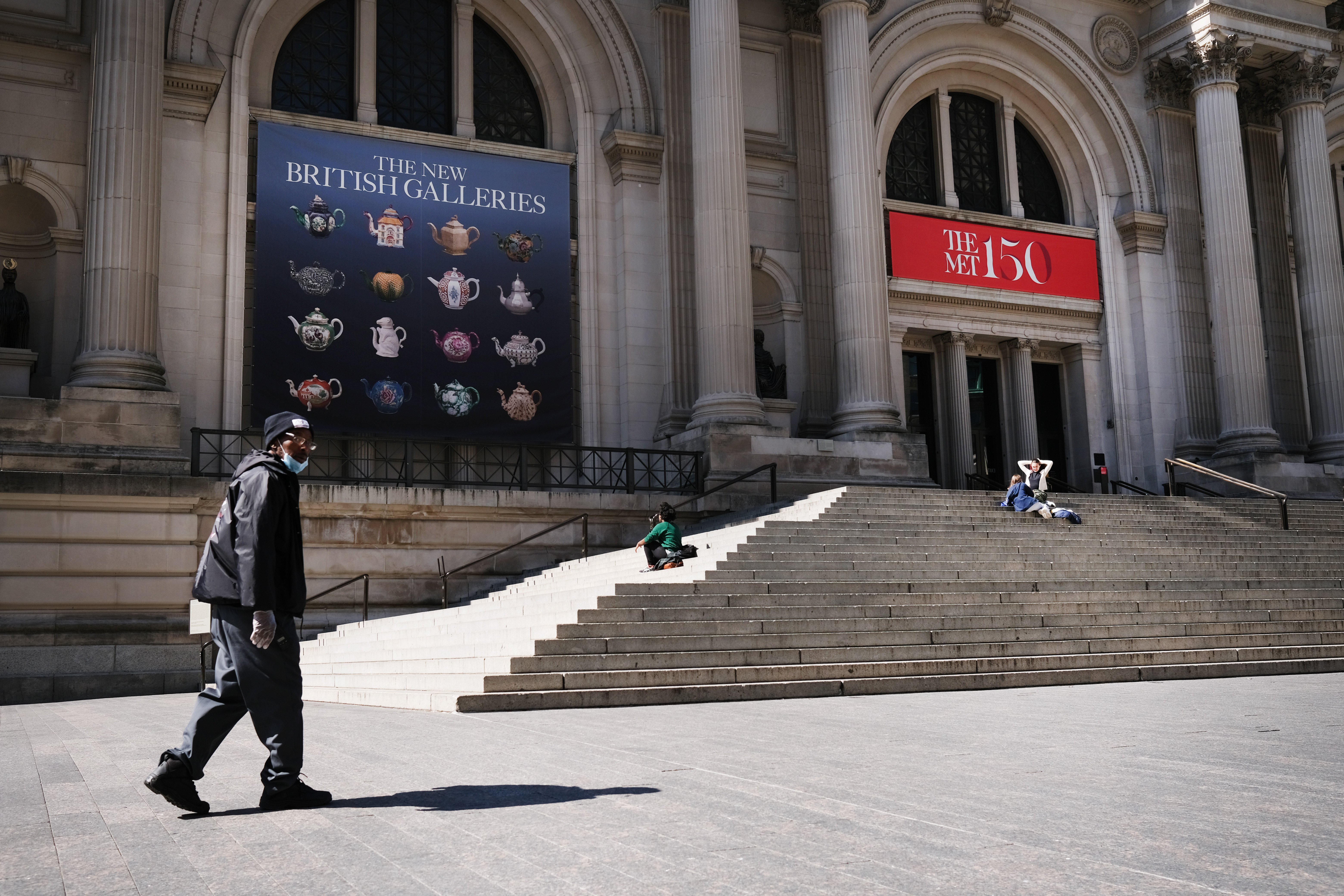
The Metropolitan Museum of Art in New York has responded to internal demands for reform by unveiling an institution-wide, 13-point anti-racism and diversity plan.
“We have learned much in these past weeks and held many important conversations,” director Max Hollein and president and CEO Daniel H. Weiss wrote in a blog post on the museum website. “Today, we are sharing a series of commitments as a next step towards creating a more open, welcoming, and equitable institution.”
The Met’s new plan includes “new approaches to how we hire, train, support, and retain staff, to how we build, study, and oversee our collection and program, and how we structure our governance and engage our community,” Weiss and Hollein wrote.
The initiative promised anti-racism training for all staff in the next 180 days (60 days for senior leadership); the hiring of a chief diversity officer within the next four months; an expansion of the museum’s paid internship program to include all interns by 2022; and the creation of a $3 million to $5 million fund “to support initiatives, exhibitions, and acquisitions in the area of diverse art histories.”
Within the next 12 months, the museum has also promised to “establish specified acquisition endowments with a total value of $10 million to increase the amount of works by BIPOC artists in our 20th- and 21st-century collections.”
“As the leaders of the Met, we are responsible for the wellbeing of our community, and we are accountable for realizing these commitments,” Hollein and Weiss wrote. “Our efforts, and this list, will not change the museum overnight, but they will move the Met forward in evolving the museum on a path towards greater fairness, opportunity, and service to the public and each other.”
This plan “addresses many of the demands we have,” For the Culture 2020, an organization dedicated to pushing New York City museums to address systemic racism, said in response to the initiative. “Although we see this as a small victory for our group and museum workers, these commitments must be accompanied by public reports to ensure this is not more lip service, as has been the case when past commitments were made.”
“If you review pay data for any BIPOC, you will see that we are paid less than a white employee in the same position,” a representative from For the Culture told Artnet News. “Museums must be taken to task for these injustices, which perpetuate the wealth gap in this country.”
The Met’s plan was released after an anonymous group of museum employees, organized as the Collective Action Working Group, released an open letter to museum leadership on June 26 demanding institutional changes.
In the letter, the group said its members have “personally experienced dismissal, silencing, or erasure by speaking up about structural racism and/or individual racial, accessibility, gender, and sexual bias,” despite the museum having developed a formal diversity and inclusion strategy in 2017.
Some 150 current and former Met employees are among the 900 signatories from local institutions have signed For the Culture’s open letter “to express our outrage and discontent of consistent exploitation and unfair treatment of Black/Brown people at these cultural institutions.”
“During this time of racial reckoning, these cultural institutions offered performative allyship with tone-deaf messaging,” said For the Culture. “The blatant hypocrisy of leadership from these institutions of claiming #blacklivesmatter but oppressing and silencing their BIPOC employees made it impossible to not call them out on it.”
One employee, Xiaoxi Chen Laurent, who was hired as an exhibition designer and worked on blockbusters such as “Heavenly Bodies: Fashion and the Catholic Imagination” and “Epic Abstraction: Pollock to Herrera” alleged publicly that she was mistreated by the museum.
“I’ve completed over 20 projects, including the museum’s largest and most publicized shows, but was always kept on a precarious contract with no job security,” Chen Laurent wrote on Instagram. “I was passed over three times for a full-time position by a white candidate with either less design or museum experience.”
Chen Laurent says that her contract is not being renewed, but that a new full-time exhibition designer, who is white, and has “little or no museum experience,” she said, is starting this week.
“We’ve seen this before, time and time again. The practice of hiring a less experienced white person simply maintains the status quo and the white supremacy ideals these institutions were founded upon,” said For the Culture, praising Chen Laurent’s bravery in speaking out. “That is the exact opposite of the Met’s new so-called commitment to diversity.”